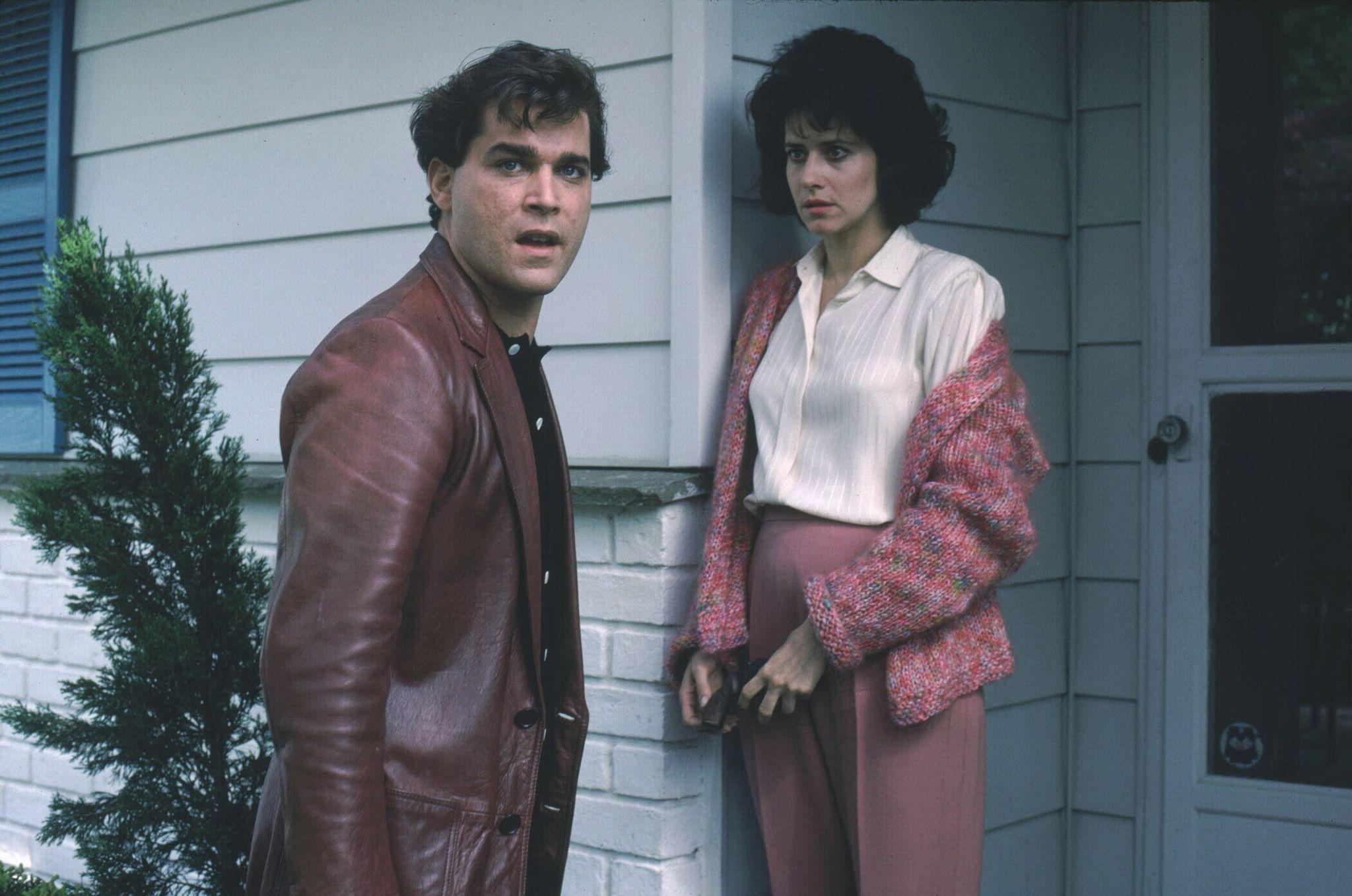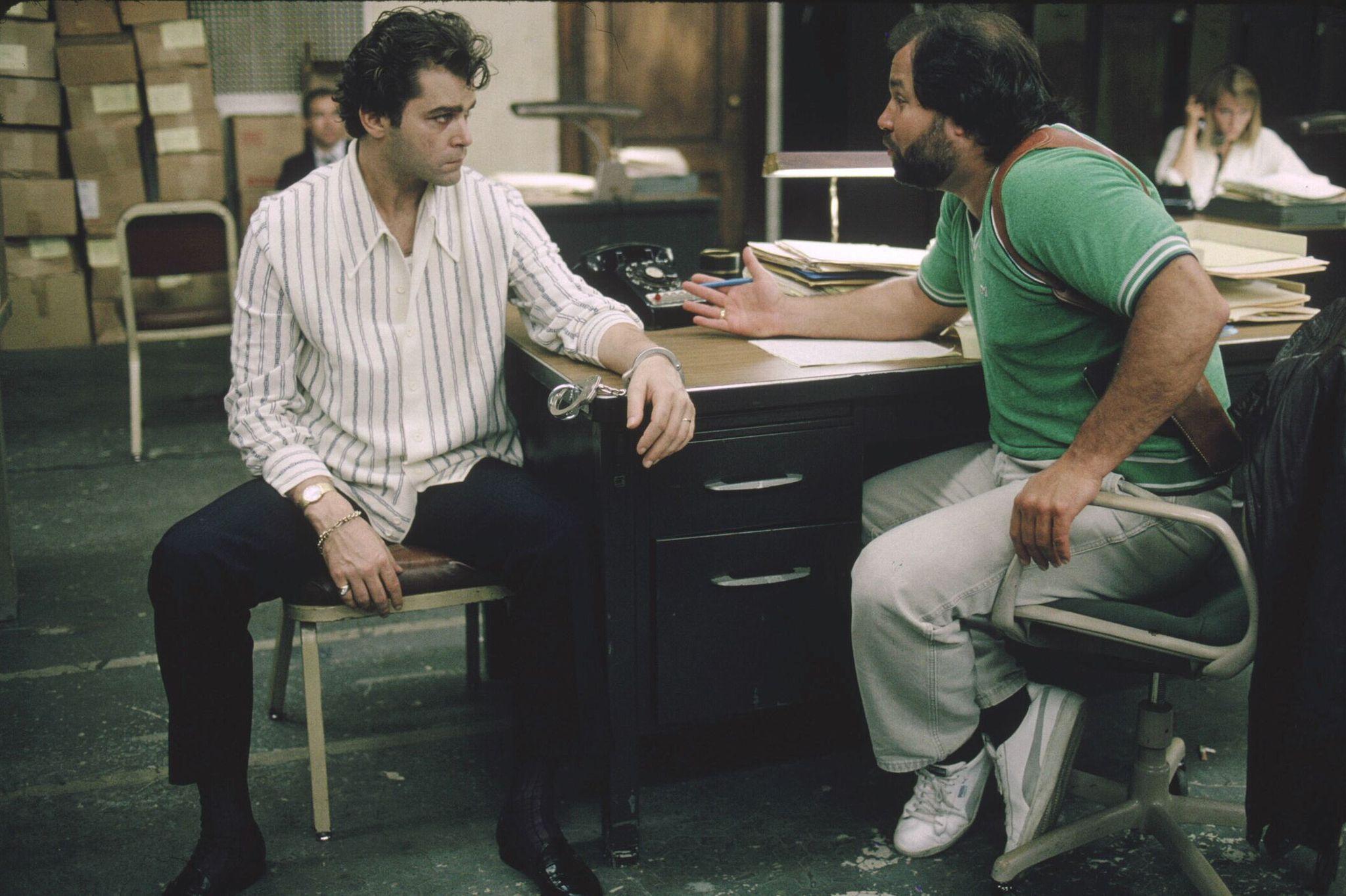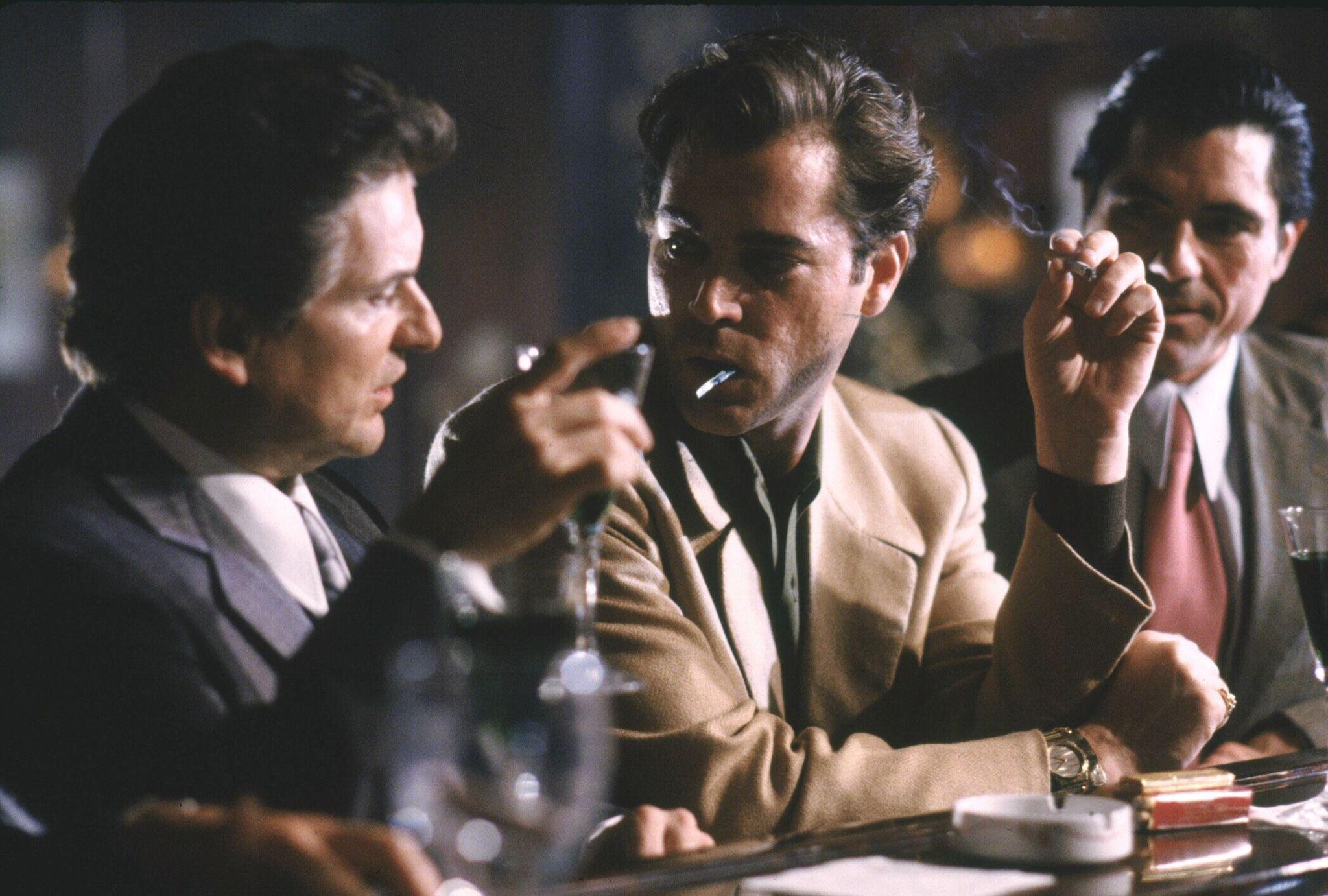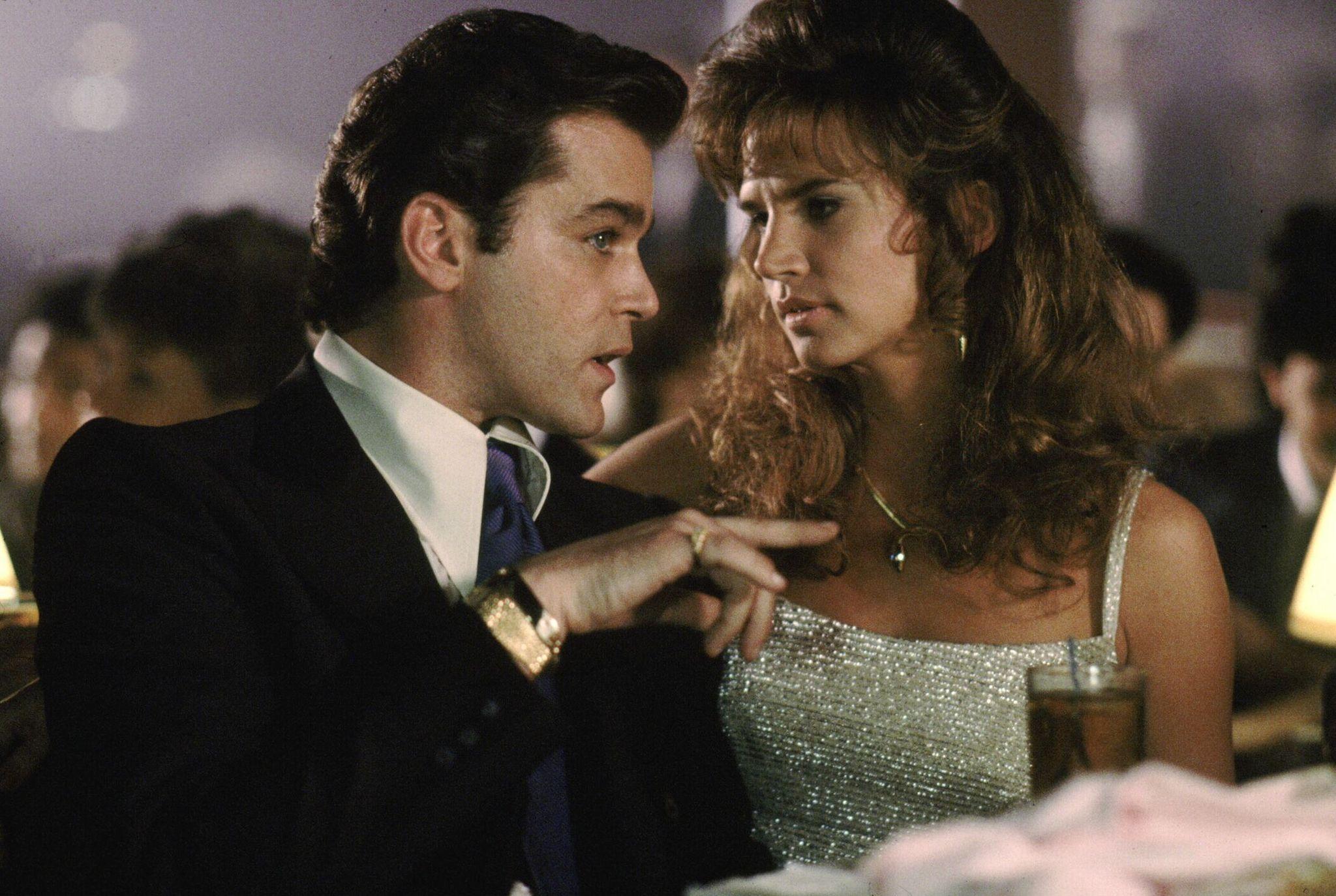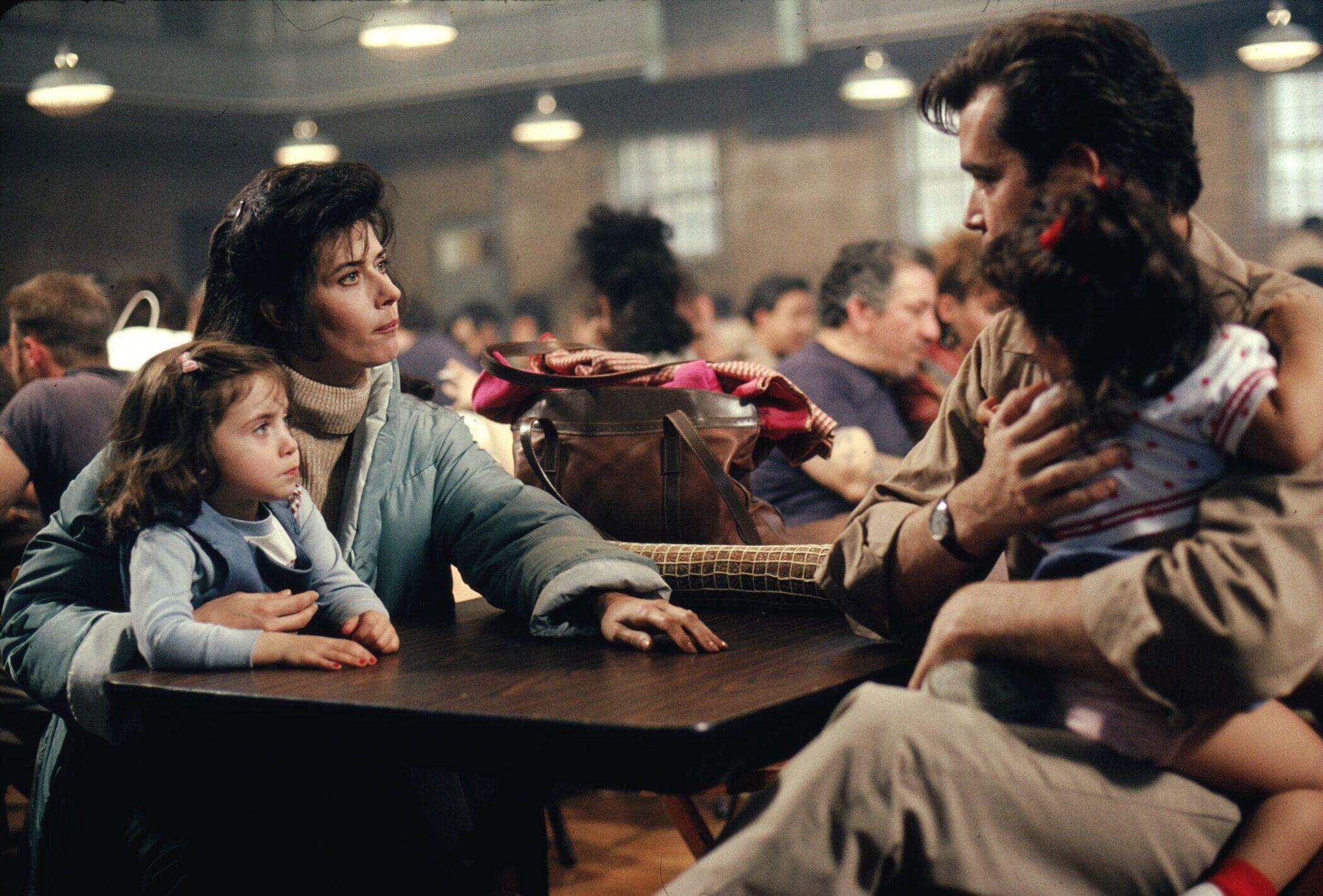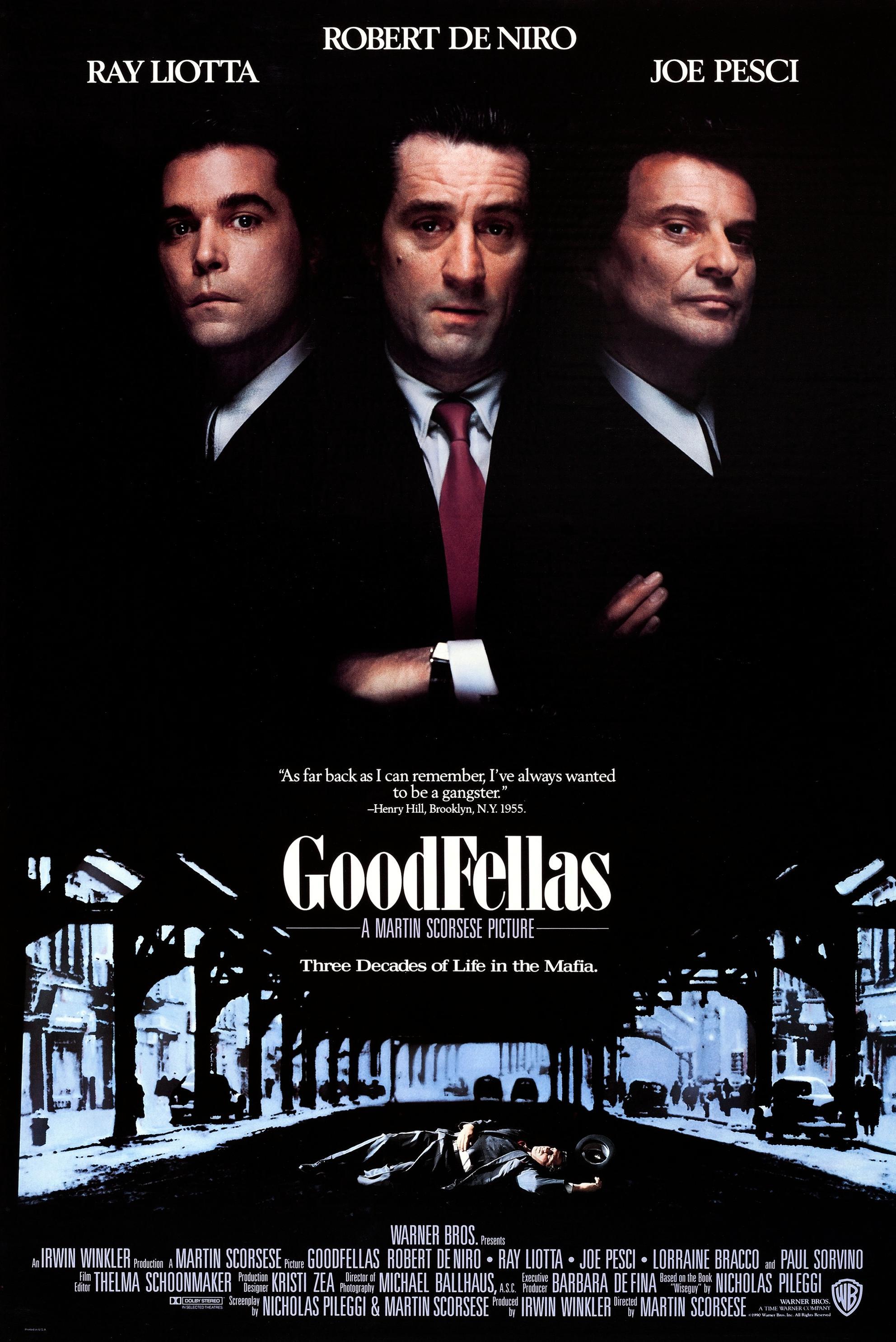Synopsis
From the outset, thrusts viewers into the gritty and high-stakes world of organized crime, following the life of Henry Hill, an ambitious young man eager to carve his path among the infamous gangsters of Brooklyn's Italian neighborhood. As a child, Henry, portrayed by Ray Liotta, idolizes the Lucchese crime family and soon abandons school to work for them. Under the guidance of mob leaders Paul Cicero, played by Paul Sorvino, and the charismatic Jimmy Conway, embodied by Robert DeNiro, Henry immerses himself deeper into a life of crime. However, as a half-Irish man, Henry knows he can never achieve full mobster status, placing him in a perpetual journey of proving his loyalty and worth.
The film vividly explores the intoxicating yet perilous allure of the gangster lifestyle. Henry's camaraderie with Tommy DeVito, played by Joe Pesci—a fellow loose cannon known for his explosive temper—leads to audacious acts, such as daring heists at JFK airport. As Henry gains more trust within the crime family, his life becomes a tumultuous ride filled with danger, adrenaline, and mounting consequences. While his gang thrives on the thrill of the heists, a darker side emerges, marked by violence and inevitable betrayal, as seen in the infamous scene where Tommy brutally lashes out at a young bartender named Spider.
Amidst the chaos, Henry's personal life also unravels complexity. He falls for Karen, a spirited Jewish woman played by Lorraine Bracco, who finds herself both entranced and repelled by the mafia lifestyle. Despite their volatile relationship and Henry's infidelities, intertwined with criminal endeavors, the couple navigates the turbulent waters of love and danger. As the stakes rise, Henry finds himself drifting further into illegal activities, despite dire warnings from his mentors. A fateful decision to engage in drug smuggling initiates a downward spiral that threatens to dismantle everything Henry has built.
The drama reaches a crescendo as paranoia creeps into the gang's ranks, leading Jimmy to eliminate potential threats to their operation. The film escalates to a tense turning point where Henry feels the deadly grip of retribution tightening around him. Ultimately, faced with the harsh realities of his world closing in, Henry makes a desperate choice to protect his family by entering the Witness Protection Program and turning informant against his former comrades.
skillfully encapsulates the heart-pounding saga of rise and fall within the mafia, crafting a tale that's equal parts thrilling and cautionary. Director Martin Scorsese delivers a masterful exploration of ambition, loyalty, and the inevitable implosion of a life lived on the edge. As the credits roll and the dust settles, the once audacious Henry confronts the stark truth: the journey back to obscurity is the price for his survival.
Argument
The opening sequence of Martin Scorsese’s iconic film is a masterclass in cinema's capacity to captivate and unsettle even the most seasoned viewer. As we witness Henry Hill (Ray Liotta) and his unpredictable criminal cohorts Jimmy Conway (Robert De Niro) and Tommy DeVito (Joe Pesci) driving through the night, a loud thump halts their journey. This thump is not a mere plot contrivance; it is a profound metaphor for the dangers lurking beneath the glamorous veneer of the gangster lifestyle. The horrifying discovery in the trunk—a man beaten and bound in bloody tablecloths—serves as a stark juxtaposition to Henry’s voiceover where he reveals his lifelong desire to be part of this ruthless underworld. This single moment encapsulates Henry’s tragic irony: the allure of the gangster life marred by its inherent brutality.
From the outset, delves into Henry Hill’s childhood admiration for the gangsters who inhabited his predominantly Italian neighborhood in Brooklyn. The allure of power and respect pulls a young Henry away from mundane schooling and into the arms of the Lucchese crime family, personified by Paul Cicero (Paul Sorvino), a character inspired by the real-life mobster Paul Vario. Under Cicero’s mentorship, Henry's criminal career blossoms, guided furthermore by his close association with Conway, who himself is a complex character based on the historical gangster Jimmy Burke. This environment fosters a bond between Henry and Tommy as they begin their foray into crime by selling smuggled cigarettes—a seemingly minor infraction that nonetheless portends their later, more dangerous exploits.
Time advances to the 1960s, where the stakes are exponentially higher. Henry, now matured into a proficient criminal, orchestrates with Conway and DeVito a heist at the Air France cargo terminal, pilfering half a million dollars. This pivotal moment symbolizes Henry's elevation within the criminal hierarchy, notwithstanding the ethnic barrier that prevents him, alongside Jimmy, from becoming a fully inducted "made man" due to his half-Irish descent. Such barriers illustrate the intrinsic discrimination even within criminal fraternities.
While Henry finds a romantic partner in Karen (Lorraine Bracco), a Jewish woman initially skeptical yet ultimately beguiled by his notoriety, the relationship becomes fraught with turbulence reminiscent of his volatile lifestyle. Their frequent visits to establishments like the Copacabana underscore how deeply ingrained the allure of the mafia life has become for them both, despite the moral compromises it demands.
An inexplicable act of violence by Tommy against an innocent bartender named Spider provides a jarring reminder of the menace that festers within these so-called 'family' ties. Tommy’s aggression, met with Jimmy's silent complicit approval, betrays a chilling indifference to life that underpins their operations. Spider's senseless murder becomes emblematic of the unsustainable chaos and moral erosion within their circle, an ominous forewarning of the spiraling path they tread.
The consequential murder of Billy Batts, a legitimate member of a rival crime family, further escalates tensions. This act, triggered by trivial disrespect, marks a critical juncture where personal grievances manifest dangerously within their business lies. The group's subsequent reburial of Batts’ body, reflected in the gruesome imagery of the initial car trunk scene, serves as a grim illustration of their relentless evasion of justice.
The unraveling narrative also spotlights Henry's descent into hubris, catalyzed by reckless decisions including his myopic involvement in drug trafficking, contrary to Cicero’s warnings. This imprudence strains his marriage further and exposes him to a sequence of misfortunes, culminating in his unexpected arrest. Despite these adversities, Henry remains entrapped in his delusions of grandeur until reality forcibly dismantles them.
Conversely, Conway's paranoia post-robbery exacerbates his defection into destructiveness, as misplaced trust among his associates morphs into lethal consequences. Jimmy’s decisions, although seemingly pragmatic from a criminal standpoint, fracture the very alliances that once empowered them within the mafia ecosystem.
Ultimately, the film’s climactic narrative—a frenetic depiction of Henry’s frantic, drug-fueled day as law enforcement encircle him—epitomizes the chaos that his once-glamorous lifestyle has engendered. His arrest shatters whatever illusion of safety he maintained, forcing him to confront the inevitable collapse of his criminal empire.
Henry recognizes the futility of his loyalty to an organizational structure that has abandoned him, prompting his transformation into an informant. This decision grants him anonymity in the Federal Witness Protection Program but at the cost of forgoing the respect and fear that once fed his ego. His testimony brings about the downfall of his erstwhile mentors, sealing his detachment from the life he mistook for his destiny.
The film’s denouement poignantly strips away the artifice of the gangster mythos, as Henry concludes in resigned reflection that he will now live as an "average nobody." This candid acknowledgment resonates as a testament to the destructive and ephemeral nature of the life he cherished. As the film fades out, marked by Sid Vicious' brash rendition of "My Way," it offers a final commentary on the reckless bravado that characterized Henry’s journey—a biting coda to his tale of ambition and folly.
Cast

Robert De Niro
James Conway

Ray Liotta
Henry Hill

Joe Pesci
Tommy DeVito

Lorraine Bracco
Karen Hill
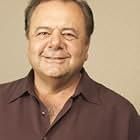
Paul Sorvino
Paul Cicero

Frank Sivero
Frankie Carbone

Tony Darrow
Sonny Bunz

Mike Starr
Frenchy

Frank Vincent
Billy Batts
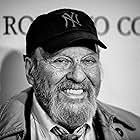
Chuck Low
Morris Kessler

Frank DiLeo
Tuddy Cicero
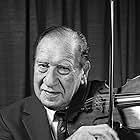
Henny Youngman
Henny Youngman

Gina Mastrogiacomo
Janice Rossi

Catherine Scorsese
Tommy's Mother

Charles Scorsese
Vinnie
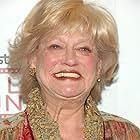
Suzanne Shepherd
Karen's Mother

Debi Mazar
Sandy

Margo Winkler
Belle Kessler
Multimedia


